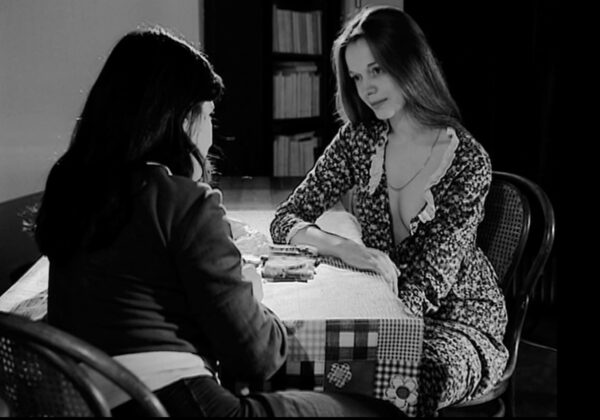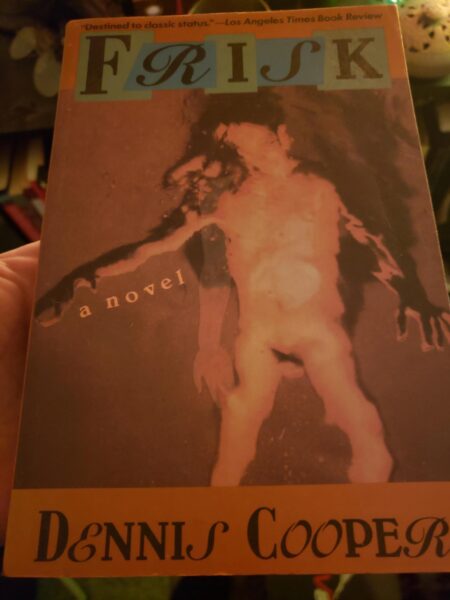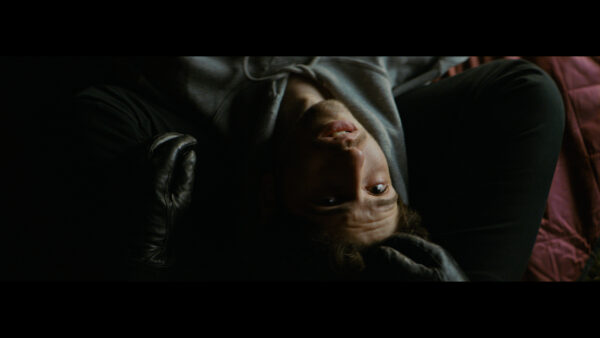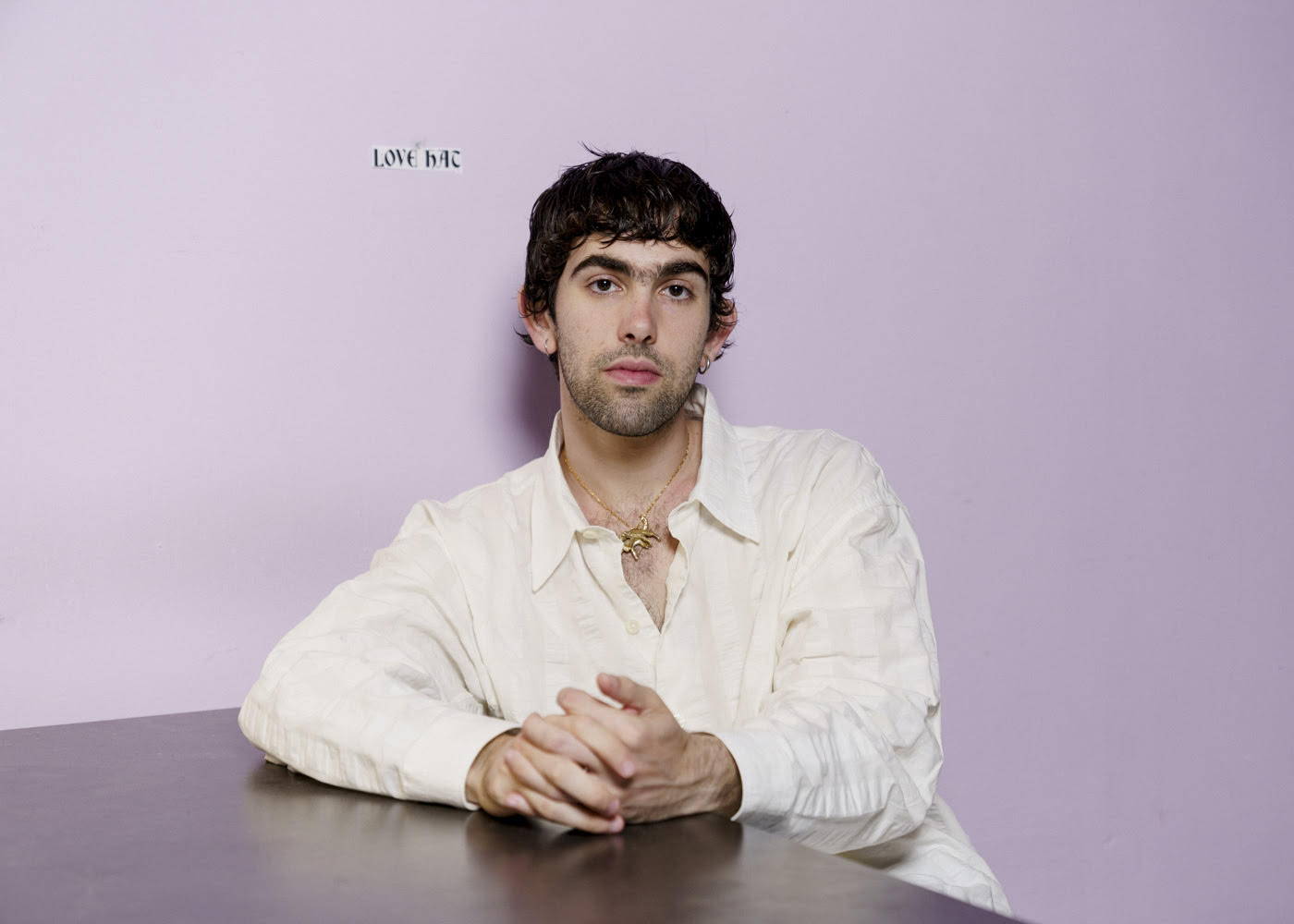SAM: I think about death a lot. Like many of us who experienced childhood in a world that seemed at constant odds with our interior life and expressions, I struggled with suicidal ideation from a young age. It’s a big part of my life and I’ve felt extremely fortunate at certain points to have had access to the right resources that meet me where I am, rather than trying to ‘correct’ or ‘fix’ me in ways that can be overwhelming, out-of-sync, or counterproductive to my specific experience.
In this film I wanted to meet a character who was contemplating death in a meaningful way, and who is met by a caretaker who is meeting him where he is. I guess to me, that’s the most provocative part of the film — not that it’s dealing with death as a theme, but rather that I’m portraying this character’s desires tenderly and compassionately. I think that idea, which is central to the film — that I’m refusing to give the audience some kind of binary or legible moral platitude about whether they should ‘like’ suicide or not — pisses people off. There was one journalist who was trolling the film online around its Sundance premiere, calling it “demented bullshit,” which I really take to heart, because I guess it means I’m doing something right. My artistic motivation has always been to make people look at their own beliefs sideways, to shake up or confront what’s perceived as familiar.
 I had been writing for a while, across theater and film, by the time I made this, so I was fairly practiced at coming up with a succinct idea and executing it in a draft, but I had never directed on film at all. I worked mostly in performance before 2020, and I still have a performance practice, but in the first year or so of the pandemic I turned to film for a sense of comfort and to fill a gap. I think the first film I ever watched that really helped me understand who I could be as a filmmaker was Chantal Akerman’s Je Tu Il Elle (1974), which is a perfect film. It’s deeply atmospheric and I admire how spare it is, and I think its portrayal of romance and desire has affected my own filmmaking. Other strong influences are Andrea Arnold, Catherine Breillat, Yann Gonzalez, Guadagnino, and Assayas. I am also a huge fan of Dennis Cooper and his contemporaries which might be clear. Generally I’m drawn to work that is genuinely risky and transgressive, and Cooper has always felt emblematic of that ethos to me.
I had been writing for a while, across theater and film, by the time I made this, so I was fairly practiced at coming up with a succinct idea and executing it in a draft, but I had never directed on film at all. I worked mostly in performance before 2020, and I still have a performance practice, but in the first year or so of the pandemic I turned to film for a sense of comfort and to fill a gap. I think the first film I ever watched that really helped me understand who I could be as a filmmaker was Chantal Akerman’s Je Tu Il Elle (1974), which is a perfect film. It’s deeply atmospheric and I admire how spare it is, and I think its portrayal of romance and desire has affected my own filmmaking. Other strong influences are Andrea Arnold, Catherine Breillat, Yann Gonzalez, Guadagnino, and Assayas. I am also a huge fan of Dennis Cooper and his contemporaries which might be clear. Generally I’m drawn to work that is genuinely risky and transgressive, and Cooper has always felt emblematic of that ethos to me.
DAVID: Zachary Quinto has played villains before, but this is on another level. Similarly, Russell Kahn’s character’s motivations only become apparent as the film goes on. How did the three of you go about developing two such mysterious, nameless characters. Was there much rehearsal and preparation for this?
 SAM: There was a lot of preparation and rehearsal with Russell because the emotional depths of the character are quite challenging to navigate, especially with so little context from a narrative standpoint. A lot of the writing is throwing him into highly emotional contexts, and Russell and I both wanted to capture the character in a convincing way. We talked a lot about titrating the emotional states in percentages. Here, you’re ten percent of this, here you’re one hundred percent this, et cetera.
SAM: There was a lot of preparation and rehearsal with Russell because the emotional depths of the character are quite challenging to navigate, especially with so little context from a narrative standpoint. A lot of the writing is throwing him into highly emotional contexts, and Russell and I both wanted to capture the character in a convincing way. We talked a lot about titrating the emotional states in percentages. Here, you’re ten percent of this, here you’re one hundred percent this, et cetera.
Zach is obviously extremely experienced, so I rehearsed with him much differently. He doesn’t like to talk that much when he’s on set or in between takes, and he really is someone who intuits his way through things in front of the camera, which he’s just incredibly strong at. He’s an incredibly warm collaborator who is exceptional at seeing things for what they are, which I think is also why we’re drawn to each other.
DAVID: This is your first short film, and it’s one hell of a calling card. Are you working on any other projects? If so, what can we expect next from Sam Max?
SAM: That’s extremely kind of you to say. I have another short film called TICKS that was commissioned by Hulu and will premiere on that platform in October. For me, I do enjoy it as a film, and I also treated that commission as a way for me to experiment with new collaborators, and new approaches to how the camera functions in different scenes. TICKS is a lot more physically dynamic than CHAPERONE, and it’s also more securely held in horror genre conventions. We shot that one completely handheld. Beyond that, I’m currently in the process of developing my first feature which will be in the horror space.

